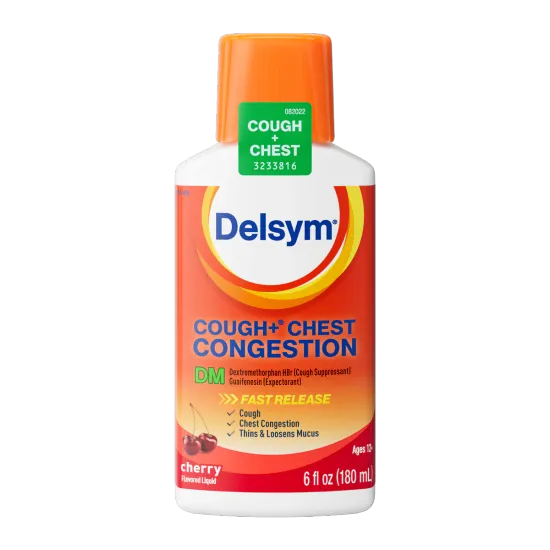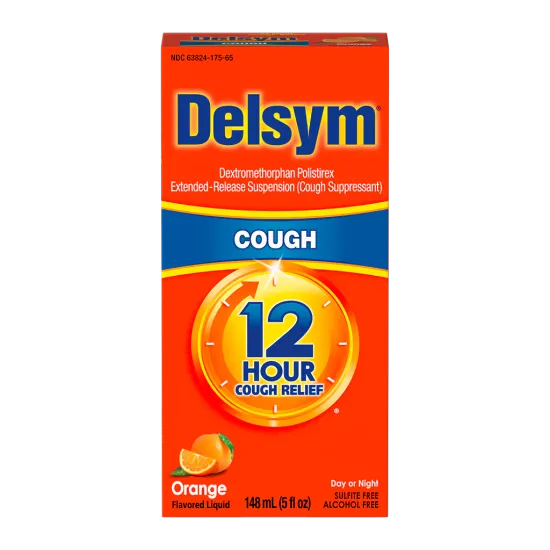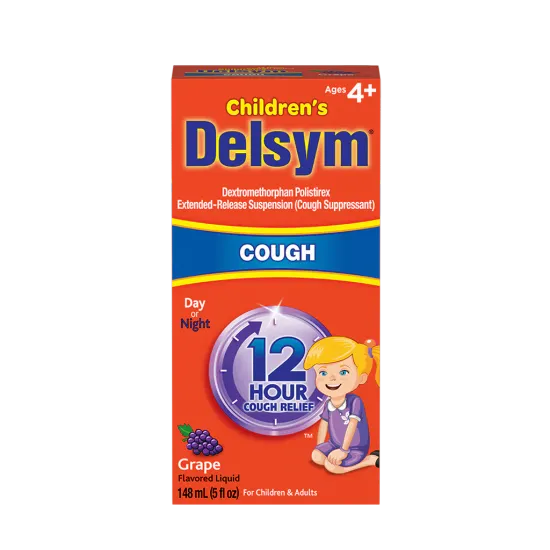
Differentiating Between a Productive and Non-Productive Cough



Many people are aware of dry and wet coughs. But they're technically categorized into two main types: productive (wet) and non-productive (dry).
Coughing is a common reflex that helps clear irritants and mucus from your airways. Various factors, including respiratory infections, allergies, environmental pollutants, and underlying health conditions can trigger it.
Understanding the differences between a productive cough and a non-productive one helps determine their underlying causes, allowing you to choose the appropriate treatment for better recovery.
What is the Difference Between a Productive Cough vs Non-Productive?
A wet cough, or productive cough, is characterized by mucus or phlegm in the airways. It typically responds to irritants or infections that trigger excess mucus production. Excelling this mucus, which may contain harmful particles or pathogens, helps clear the airways.
It's often associated with bronchitis, pneumonia, and the common cold. People with a wet cough may experience symptoms like chest congestion, a rattling sound during coughing, and the need to clear their throat frequently.
Productive Cough (Wet) | Non-productive Cough (Dry) |
|---|---|
Triggered by excess mucus production | Triggered by lack of mucus production |
Associated with respiratory tract infections | Associated with viral and mild respiratory tract infections |
Moist, gurgling sounds | Sharp, hacking sounds |
Fluid, wet coughs | Dry, irritating coughs |
In contrast, a dry cough lacks mucus or phlegm in the airways and is non-productive. It can persist and is often due to irritation or inflammation in the throat or airways. Common triggers for a dry cough include allergens, smoke, or postnasal drip.
Conditions like asthma, acid reflux/GERD, or the early stages of a respiratory tract infection may also lead to a dry cough. It's typically a tickly and scratchy throat sensation with a persistent urge to cough.
What Does a Productive Cough vs. Non-Productive Sound Like?
What a Non-Productive (Dry) Cough Sounds Like
A dry cough typically has a sharp, hacking or barking sound. It often resembles a repetitive, forceful throat clearing or a series of quick, shallow coughs. This type of cough is often unproductive, meaning that it doesn't result in the expulsion of mucus or phlegm.
Instead, it primarily involves rapidly expelling air from the airways. A hacking cough often accompanies a tickly or scratchy sensation in the throat, intensifying the coughing sound.
What a Productive (Wet) Cough Sounds Like
A wet cough, on the other hand, is characterized by a deeper, moist, or gurgling sound. It often produces sounds akin to the movement of mucus or phlegm in the airways. Productive coughs can sound like fluids from a noticeable rattling or bubbling noise.
The productive nature of a wet cough means it's more likely to result in the expulsion of mucus, providing additional acoustic cues. The sound of a wet cough indicates the presence of excess mucus that the body is trying to clear from the respiratory system.
What Causes a Wet Cough?
A wet or productive cough occurs due to excess mucus or phlegm in the airways. The body's natural defense mechanism is removing mucus and foreign particles from the respiratory tract. Several factors and conditions can lead to the development of a wet cough:
Respiratory Tract Infections
One of the most common causes of a wet cough is respiratory tract infections, such as the common cold, flu, bronchitis, or pneumonia. Respiratory tract Infections can trigger inflammation and excessive mucus production in the airways, leading to a wet or productive cough. The body's defense goal is to expel the mucus and pathogens to aid recovery.
Allergies
Allergies to environmental factors like pollen, dust, pet dander, or mold can irritate the airways and lead to a wet cough. Allergic reactions may increase mucus production as the body attempts to trap and remove the allergens. This can be particularly problematic for people with conditions like allergic rhinitis or asthma.
Environmental Irritants
Exposure to environmental irritants, such as smoke, pollution, or chemical fumes, can also provoke a wet cough. These irritants can lead to airway inflammation and increased mucus production as the body attempts to protect itself from harm. People who work in environments with high levels of irritants may be more susceptible to productive coughs.
Gastroesophageal Reflux Disease (GERD)
GERD is a physical condition when stomach acid flows back into the esophagus, potentially reaching the airways. This acid can irritate the throat and trigger coughing, often leading to a wet cough.
What Causes a Dry Cough?
A dry or non-productive cough is a persistent, tickly, or scratchy sensation in the throat. It typically lacks the production of mucus or phlegm. Several factors and conditions can lead to dry coughs:
Respiratory Irritants
Exposure to air irritants, such as cigarette smoke, air pollution, dust, or strong odors, can provoke a dry cough. These irritants can trigger inflammation in the airways, leading to throat irritation and an urge to cough. Prolonged exposure to irritants can contribute to the persistence of a dry cough.
Allergic Reactions
Allergic reactions to substances like pollen, pet dander, mold, or even certain foods can lead to airway inflammation and a dry, irritating cough. In allergic individuals, the body's immune response to these allergens can cause the throat to become irritated and trigger a cough.
Viral Infections
While wet coughs are more common in respiratory infections, dry coughs can also be a symptom of viral infections like the common cold or the early stages of respiratory illnesses. As the infection progresses, the cough may transition from dry to wet as mucus production increases.
GERD
Determining whether your wet or dry cough is related to GERD can be tricky, as it is known to cause both. Some studies have suggested that 25% or more of chronic coughs are associated with GERD.
Asthma
Airway constriction and inflammation in asthma can cause a dry cough in some individuals. Asthma-related coughing can be triggered by airway constriction and inflammation without significant mucus production.
How Can I Relieve My Type of Cough?
Relieving your specific type of persistent cough depends on whether it's wet or dry and its underlying cause. Here are some general guidelines to help you find relief:
For Wet Coughs (Productive Coughs)
Use Expectorants & Cough Suppressants
Delsym® Maximum Strength Cough Suppressant Caplets help the body suppress the urge to cough and last up to 8 hours.
Stay Hydrated
Proper hydration is essential for thinning and loosening mucus, making it easier to clear from your airways. Drink plenty of fluids, such as water, herbal teas, and broths. These can help soothe your throat and keep mucus more manageable.
Use a Humidifier
A cool-mist humidifier in your bedroom can add moisture to the air and alleviate throat dryness, especially at night. This can help reduce irritation and minimize nighttime coughing.
Elevate Your Head
A cool-mist humidifier in your bedroom can add moisture to the air and alleviate throat dryness, especially during nighttime. This can help reduce irritation and minimize nighttime coughing.
For Dry Coughs (Non-Productive Coughs)
Use a Cough Suppressant
Delsym® 12-Hour Grape Flavored Cough Liquid gives you long-lasting, effective relief from coughing so you can get on with your day.
Soothe Your Throat
Consuming cough drops, throat lozenges, or hard candies can help ease a sore throat and suppress the urge to cough. Look for products that contain ingredients like menthol or honey, which can provide natural relief.
Try Steam Therapy
Inhaling steam can help moisten your airways and soothe irritation. To relieve dry cough symptoms, place your head over a bowl of hot water and cover it with a towel. Breathe deeply for a few minutes to create a steam tent.
Address the Underlying Cause(s)
Suppose your dry cough is related to allergies, irritants, or an underlying medical condition like asthma or GERD. In that case, it's essential to address those issues. Avoid exposure to allergens and irritants, and consider consulting with your doctor to manage the underlying condition.
Another potential cause of a dry, persistent cough is ACE inhibitors, a class of medications used to treat high blood pressure. If this side effect occurs, your doctor may switch you to a different type of medication.
Distinguishing between a productive cough and vs. non-productive one is critical for understanding their root causes and choosing the appropriate treatments.
While a productive cough aims to clear mucus and irritants from the airways, a non-productive cough can be dry and irritating— often triggered by allergies, irritants, or underlying health conditions.
Whether it's a productive cough vs. non-productive, if it persists, worsens, or causes severe symptoms, contact your doctor for a proper evaluation. By addressing the root cause and alleviating symptoms, you can find relief from coughing and enjoy better respiratory health.
Resources
- Cleveland Clinic (2021), Dry Cough and Chest Tightness
- National Library of Medicine (2011), Cough and Asthma
- National Library of Medicine (2013), Management of GERD-Related Chronic Cough
- American Lung Association (2023), Learn About Cough
- Harvard Health Publishing-Harvard Medical School (2023), Cracking the cough code
- WebMD (2024) Side Effect of High Blood Pressure Medications
.avif)